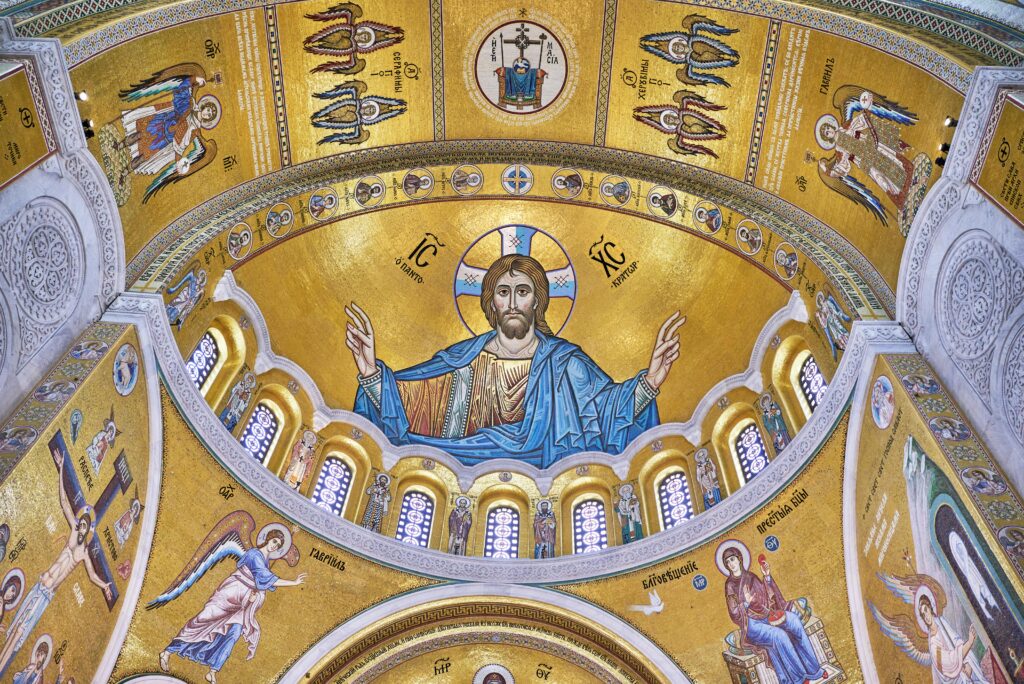A Journey into Orthodox Christianity: History, Beliefs, and Spirituality
Orthodox Christianity stands as a profound and enduring expression of the Christian faith, preserving ancient traditions, deep theological wisdom, and a rich spiritual heritage. Rooted in the teachings of Jesus Christ and His apostles, the Orthodox Church has upheld its sacred doctrines and practices for centuries, passing them down through generations. Flourishing in the heart of the Byzantine Empire, it was shaped by the wisdom of early Church Fathers and theologians, laying a strong foundation for its theology and liturgy. As one of the oldest branches of Christianity, its influence extends far beyond its origins, embracing diverse cultures and communities worldwide.
At the heart of Orthodox Christianity lies a steadfast belief in the Holy Trinity—the Father, the Son (Jesus Christ), and the Holy Spirit. This foundational doctrine is articulated in the Nicene Creed, a statement of faith established at the First Ecumenical Council in 325 AD. In addition to Holy Scripture, the Church holds sacred Tradition in high esteem—wisdom passed down from the apostles and early Church Fathers that guides theological understanding and interpretation.
Worship in the Orthodox Church is a deeply immersive experience, filled with rich symbolism, sacred art, and profound spiritual meaning. The veneration of icons—holy images depicting Christ, the Virgin Mary, and the saints—serves as a bridge between the earthly and the divine. The Divine Liturgy, the central act of worship, invites believers into the mystical experience of the Eucharist, where they partake in the real presence of Christ’s body and blood.
Beyond theology and worship, Orthodox Christianity has left a lasting cultural imprint on art, architecture, and music. From majestic Byzantine churches adorned with intricate mosaics and frescoes to the soul-stirring chants of ancient hymns, the Church’s artistic expressions reflect its spiritual depth and devotion.
As we embark on an exploration of Orthodox Christianity, we will delve into its rich history, foundational beliefs, sacramental life, worship practices, and the inseparable bond between faith and culture. In a world of constant change, Orthodox Christianity remains a spiritual anchor, offering believers a connection to timeless truths, a deep sense of community, and a path toward divine communion.
The Early Foundations of Orthodox Christianity
Orthodox Christianity traces its origins to the apostolic era of the first century, with its foundations firmly established in the Byzantine Empire. As the faith spread, early Church Fathers and theologians played a pivotal role in defining its doctrines, shaping the liturgy, and preserving the sacred traditions that continue to guide Orthodox believers today.
Schisms, Councils, and Doctrinal Development
Throughout history, the Orthodox Church encountered theological and political divisions that led to various schisms, shaping its structure and governance. Key among these events were the Ecumenical Councils, such as the First Council of Nicaea in 325 AD, which addressed theological disputes and established foundational doctrines. These councils were instrumental in shaping Orthodox Christianity’s beliefs and ensuring doctrinal unity across different regions.
The Spread and Cultural Influence of Orthodoxy
Beyond its Byzantine roots, Orthodox Christianity expanded to Eastern Europe, Russia, the Middle East, and parts of Asia. As the faith spread, it integrated with local cultures, resulting in diverse yet interconnected Orthodox traditions. This widespread influence is evident in Orthodox art, architecture, music, and religious practices, which continue to flourish in various communities worldwide.
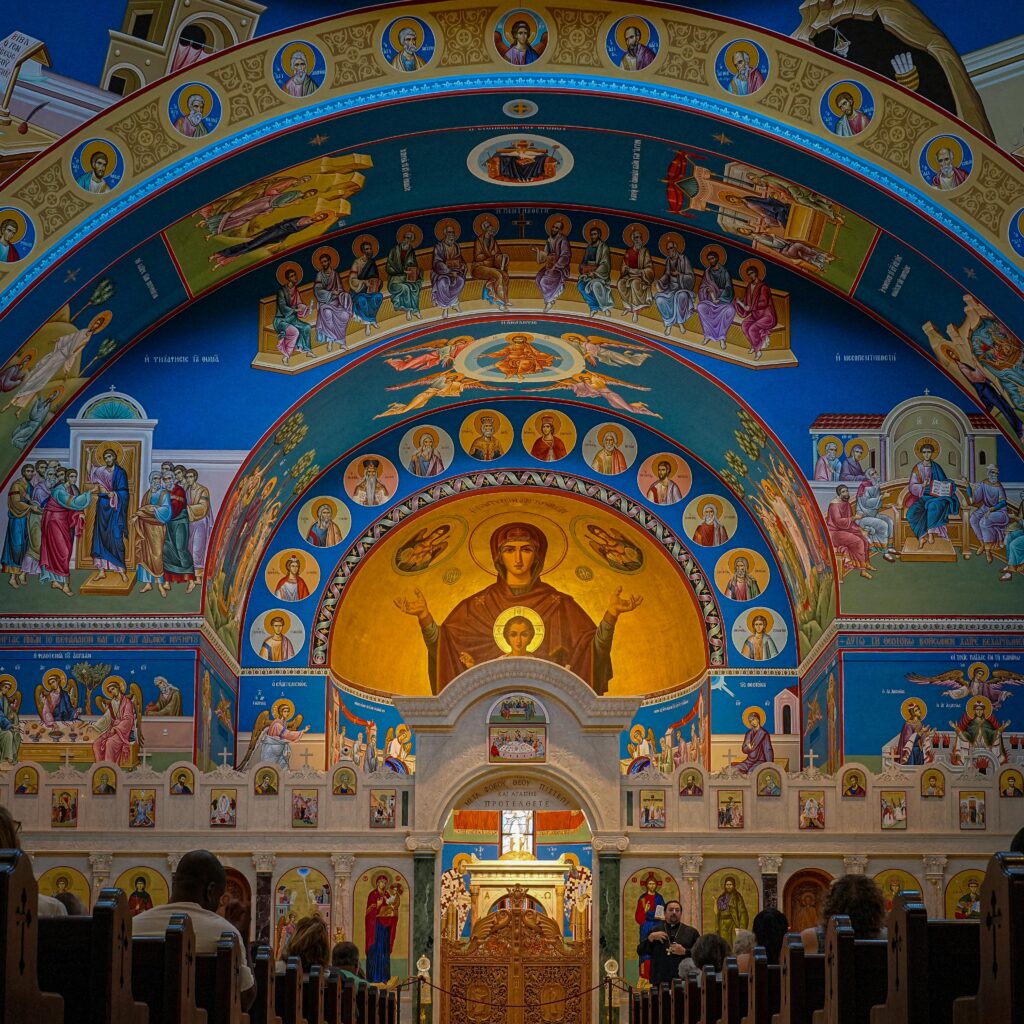
Core Beliefs of Orthodox Christianity
The Holy Trinity
At the heart of Orthodox Christian theology is the doctrine of the Holy Trinity—God as three persons in one essence: the Father, the Son (Jesus Christ), and the Holy Spirit. This foundational belief shapes Orthodox worship, theology, and spiritual life.
The Nicene Creed: A Defining Statement of Faith
The Nicene Creed, established during the First Ecumenical Council, serves as a central declaration of Orthodox Christian beliefs. It affirms key doctrines, including the divinity of Christ, the Holy Spirit’s role, and the Church’s mission, ensuring a unified expression of faith across the Orthodox world.
Scripture and Sacred Tradition
Orthodox Christians regard the Holy Scriptures as divinely inspired, forming the bedrock of their faith. However, alongside the Bible, sacred Tradition holds significant authority, encompassing the teachings of the early Church Fathers, the decrees of the Ecumenical Councils, and centuries of spiritual wisdom passed down through generations.
Salvation and Atonement in Orthodox Christianity
Orthodox theology teaches that salvation is achieved through the life, death, and resurrection of Jesus Christ. This process of reconciliation with God is not merely a legal transaction but a transformative journey of theosis—becoming one with God through faith, prayer, and participation in the sacraments.

The Sacred Role of Icons and Sacraments
Iconography in Orthodox Worship
The veneration of icons is a fundamental aspect of Orthodox Christianity, serving as a bridge between the earthly and the divine. These religious images, depicting Christ, the Virgin Mary, saints, and biblical scenes, are not merely works of art but sacred tools for prayer and contemplation. Icons play a vital role in both communal worship and personal devotion, helping believers deepen their connection with God.
The Seven Sacraments: Sacred Mysteries of the Faith
The Orthodox Church recognizes seven sacraments, or “Holy Mysteries,” through which believers receive God’s grace. Each sacrament represents a profound spiritual reality:
- Baptism – The initiation into the Church and the cleansing of original sin.
- Chrismation – The anointing with holy oil, bestowing the gift of the Holy Spirit.
- Eucharist – The central act of worship, in which believers partake of Christ’s body and blood.
- Confession – The sacrament of repentance, where sins are forgiven through a priest’s absolution.
- Holy Orders – The ordination of clergy to serve the Church.
- Matrimony – The sacred union of a man and woman, blessed by God.
- Anointing of the Sick – The sacrament of healing, offering spiritual and physical restoration.
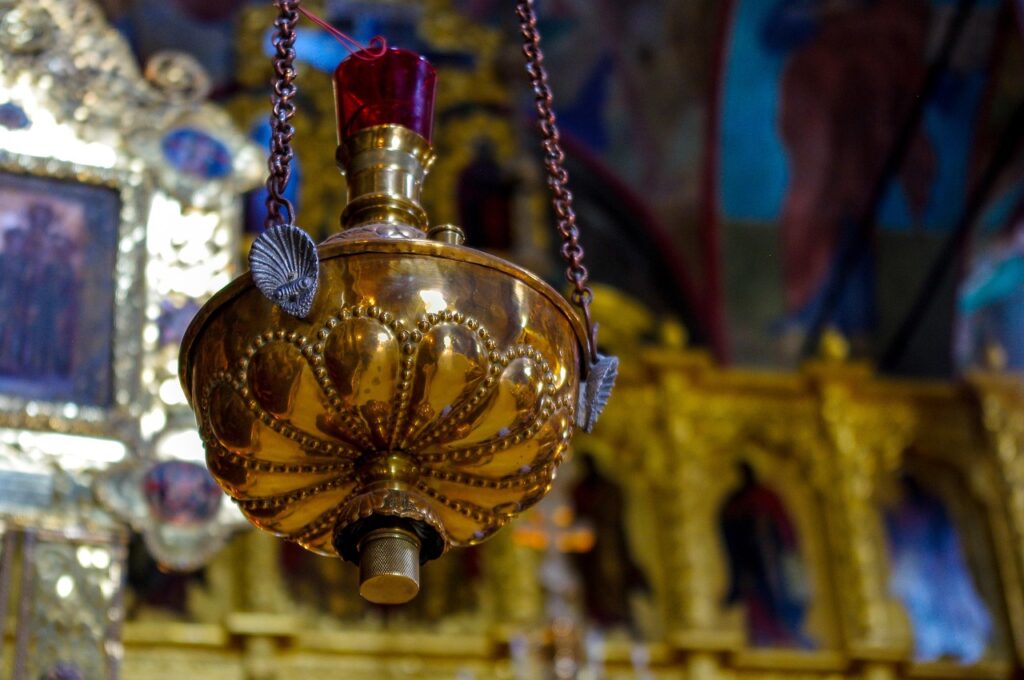
Worship Practices in Orthodox Christianity
The Divine Liturgy: The Heart of Worship
The Divine Liturgy is the pinnacle of Orthodox Christian worship. This solemn and deeply symbolic service centers on the Eucharist, inviting the faithful into communion with Christ. Rooted in ancient tradition, the liturgy combines prayers, hymns, scripture readings, and the consecration of the Holy Gifts in a transcendent experience of worship.
Fasting and Feasting: A Rhythm of Spiritual Life
Fasting holds a significant place in Orthodox Christian life, with specific periods dedicated to abstaining from certain foods and activities as a means of spiritual discipline. The most notable fasts include Great Lent, the Nativity Fast, and the Apostles’ Fast. In contrast, feasting is a joyful celebration of major religious events and saints’ feast days, strengthening the bonds of faith and community.
Prayer and Spiritual Contemplation
Prayer is an essential part of Orthodox spirituality, encompassing personal prayers, communal worship, and liturgical prayers. The Jesus Prayer—”Lord Jesus Christ, Son of God, have mercy on me, a sinner”—is a central practice in Orthodox Christian devotion, fostering inner peace and spiritual growth.
The Structure of the Orthodox Church
Hierarchy and Clergy
The Orthodox Church follows a hierarchical structure led by bishops, archbishops, and patriarchs. Clergy, including priests and deacons, play a vital role in administering the sacraments and guiding the faithful. Despite this structure, the Church operates with a decentralized model, where each jurisdiction maintains its own governance while remaining united in faith.
Parish Life: A Close-Knit Spiritual Community
The local parish serves as the heart of Orthodox Christian life, where believers gather for worship, religious education, and community activities. Beyond liturgical services, Orthodox parishes often engage in charitable work, social events, and cultural traditions, fostering a strong sense of spiritual family.
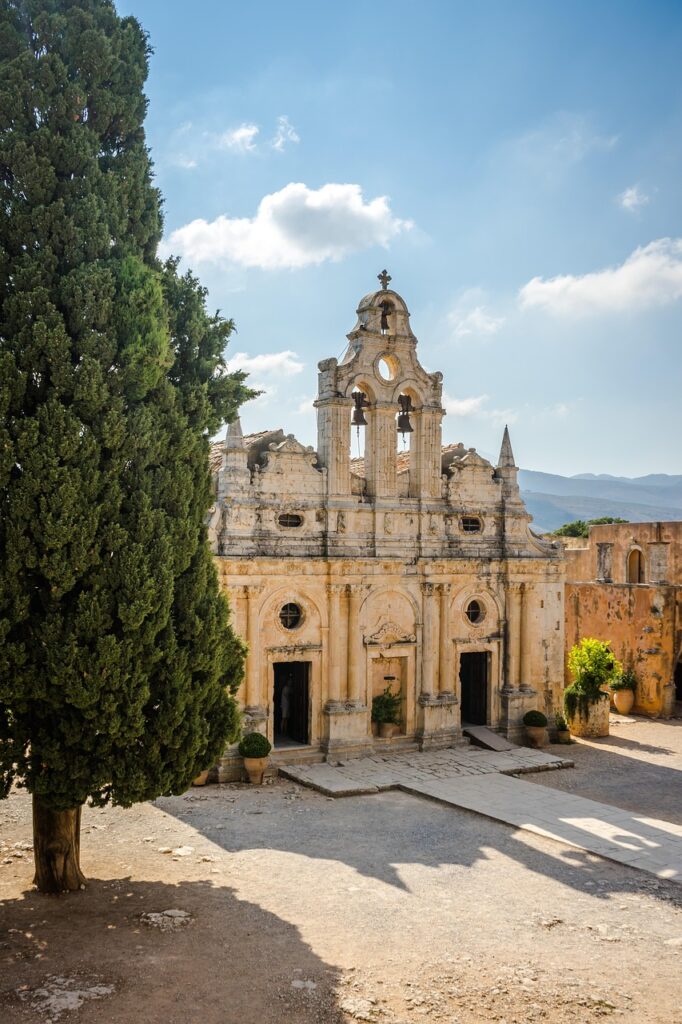
Orthodox Christianity’s Cultural Legacy
Impact on Art and Architecture
Orthodox Christianity has significantly influenced art and architecture, with its rich tradition of iconography, frescoes, and intricate church designs. Byzantine-style churches, adorned with golden domes, mosaics, and elaborate iconostasis screens, reflect the deep spiritual symbolism of Orthodox worship spaces.
Traditions and Celebrations
Orthodox Christian communities celebrate numerous religious and cultural traditions, such as Pascha (Easter), the Nativity of Christ, and Theophany. These celebrations, often marked by vibrant liturgies, processions, and festive gatherings, reinforce the spiritual and communal identity of Orthodox believers.
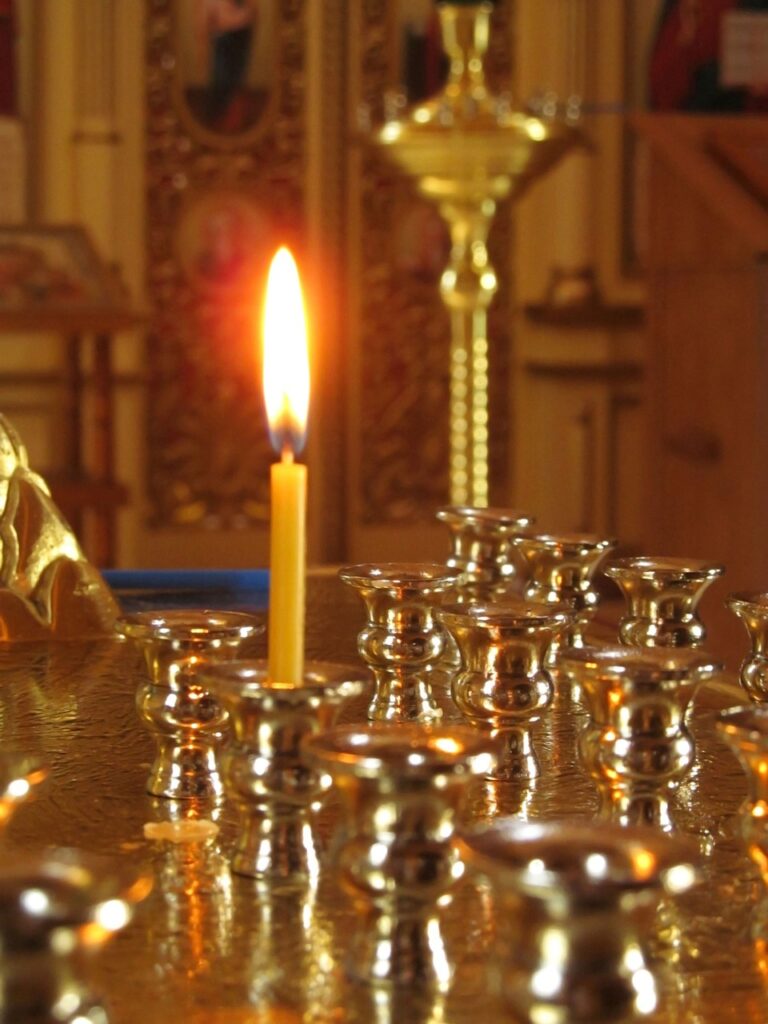
Orthodox Christianity in the Modern World
Challenges and Adaptations
Like all religious traditions, Orthodox Christianity faces contemporary challenges, including secularization, technological advancements, and shifting social norms. While remaining steadfast in its core beliefs, the Church continues to adapt, engaging with modern issues while preserving its sacred traditions.
A Global Orthodox Presence
With thriving communities across the world, Orthodox Christianity extends beyond its historical heartlands. From Greece and Russia to North America, Africa, and Asia, Orthodox believers contribute to the religious, cultural, and social fabric of their societies, keeping their ancient faith alive in an ever-changing world.
Conclusion
Orthodox Christianity remains a living tradition, deeply rooted in history yet ever relevant in the modern era. Through its devotion to icons, sacraments, and worship, as well as its profound cultural influence, the Orthodox Church continues to offer a path of spiritual depth, communal connection, and divine grace to believers worldwide.

